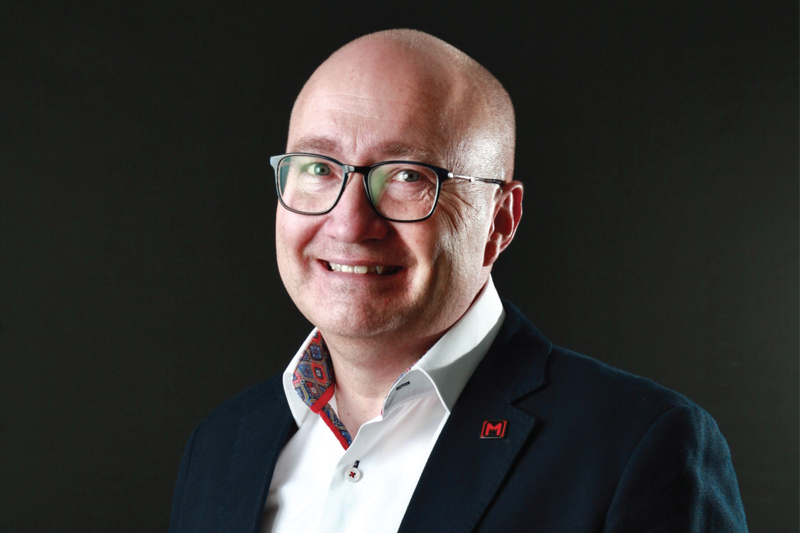The story behind the [M]enable mental wealth platform
![The story behind the [M]enable mental wealth platform](https://pmfmag.co.uk/wp-content/uploads/2024/05/Mental-wealth.jpg)
Stephen, the founder of [M]enable, shares the genesis, evolution, and mission of his platform focused on mental health within the industry.
Stemming from personal struggles, Stephen recognised the urgent need to address mental health in a traditionally masculine-dominated sector. However, as the conversation unfolded, it became evident that the issues addressed by [M]enable transcend gender, leading to a broader focus on promoting mental well-being for all individuals.
Q. Where did the idea for [M]enable emanate from?
A. “The idea for [M]enable stemmed from my personal experiences during the pandemic. Both of my successful businesses were heavily impacted by the lockdowns, and I also went through a significant personal crisis, which exacerbated underlying mental health issues. “The idea to create a platform addressing men’s mental health in the automotive industry came from a desire to provide a voice to this important topic and challenge the stigma surrounding it.”
Q. Can you tell me about these “successful businesses”?
A. “Before founding [M]enable, I was running two training businesses concurrently, specialising in coaching, facilitation, and conference hosting. Prior to that, I had a background in automotive consultancy and finance. Ultimately, I have been in the industry for 35 years, 16 of which was working for OEMs.”
Q. You mentioned that [M]enable initially focused on men’s mental health but has since evolved – can you elaborate on that evolution?
A. “While [M]enable initially focused on men’s mental health due to the male-dominated nature of the automotive industry, we soon realised that the issues we were addressing transcended gender. Masculine culture, characterised by traits like competitiveness and goal-oriented behaviour, affects everyone in the industry, regardless of gender.
“As a result, we expanded our focus to promote mental well-being for all individuals in the automotive sector.”
Q. How do you navigate the stigma surrounding mental health and change cultural norms within the automotive sector?
A. “We challenge traditional notions of masculinity by promoting open dialogue and emphasising that seeking help is a sign of strength, not weakness. By fostering a culture of empathy, understanding, and inclusivity, we aim to create a supportive environment where individuals feel comfortable discussing their mental health without fear of judgment.
“One prevalent issue is the results-oriented nature of our industry. This stems from the mass manufacturing and consumption framework we operate within, necessitating a distribution network and franchise models. Consequently, targets are imposed, leading to pressure for achievement, as financial and personal commitments are at stake.
“Additionally, many entrepreneurs in our field, like independent repairers and garage owners, are driven by passion but face unique challenges, having invested their own resources into their businesses.

“Another aspect is our diagnostic and fix-it approach, mirroring how we manage people. However, this mindset doesn’t align with addressing individual challenges and personal stories effectively.
“We recognise that we’re not ‘fixers’ or ‘rescuers’ but rather aim to listen, understand, and empathise. While I’m not a mental health expert, my background in Neurolinguistic Programming (NLP) and continuous self-development equips me with insights and tools to support my team.
“Importantly, we have a referral network, including organisations like Ben, to provide professional intervention if needed.”
Q. Have you faced resistance or scepticism within the sector regarding your efforts?
A. “Unfortunately, yes, there has been some resistance, particularly from those who view discussions about mental health as opening a ‘can of worms’ or perceive it as a distraction from work.
“Additionally, I would argue some companies have paid lip service to the issue without making meaningful cultural changes.
“That said, we’ve also encountered significant support, particularly from women in the industry who recognise the importance of addressing mental health issues.”
Q. Can you explain the concept of ‘mental wealth’ and its significance in promoting well-being?
A. “Mental wealth reframes the conversation around mental health from one of illness and pathology to one of growth, success, and self-care. By focusing on mental wealth, we emphasise the importance of nurturing mental well-being proactively, rather than solely reacting to mental health crises.
“This shift in perspective encourages individuals to prioritise self-care and resilience, leading to a more positive and supportive work environment.”
Q. Have you observed positive outcomes since adopting the concept of mental wealth?
A. “Yes, we’ve seen increased interest and receptiveness from businesses within the sector since adopting the concept of mental wealth. By reframing the conversation and offering proactive solutions through initiatives, like ‘well-being winners’, we’ve empowered businesses to prioritise mental well-being as a key component of their culture.”
Q. How can businesses or individuals within the sector become wellbeing winners?
A. “Becoming a well-being winner involves making a commitment to prioritise mental well-being within an organisation. Companies undertake an initial assessment and then commit to a year-long programme to achieve a gold, silver or bronze standard. This may be participating in more assessment programmes, implementing recommended strategies for improvement, or creating a culture of support and openness regarding mental health.”
Q. Finally, Stephen, would you mind telling our audience if you are still addressing the challenges that led to the founding of [M]enable?
A. “This is important to address because some of your readers may be encountering their own journey… While I continue to face personal challenges, I’ve learned to live with the outcomes and focus on maintaining mental wealth. While there’s still work to be done, I’m in a much healthier place mentally and remain committed to supporting others on their mental health journeys.
“The purpose of this article is to provide insights into the origins of [M]enable, its evolution, challenges faced, but, most importantly, promoting mental wealth within the automotive sector, our sector.”








